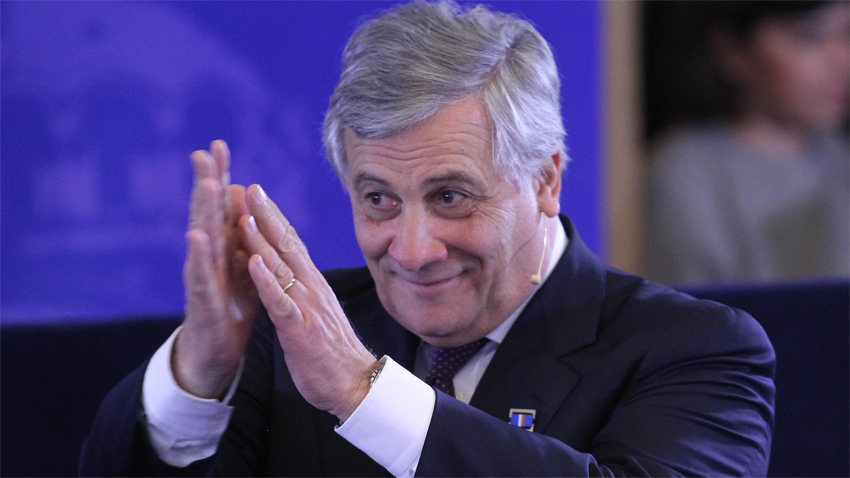President of the EP Antonio Tajani had a debate with high school and university students at the Sofia University St. Kliment Ohridski. The meeting was part of the EP Conference of the EP Presidents’ working visit to Bulgaria’s capital due to the forthcoming presidency of the Council of the EU that Bulgaria is taking over as of January 2018. The debates tackled major youth subjects, such as education, cultural life, attitude to people with disabilities, looking for wanted job opportunities etc. Antonio Tajani hailed the young people with the following words:

The Bulgarian young people showed great interest in the meeting, entitled “The Voice of Youth: What Kind of Europe Do We Want?” They were all active, familiar with the activities of the EP and ready to ask questions, important for their current and future development as European citizens. What kind of Europe do the young people want and what are their joys and concerns?
“I would include in the agenda of the parliament the main political issues, related to security and migration, as in my opinion these are the main challenges for Europe right now,” says Peter, one of the participants in the discussion.
“The first thing I would do for Bulgaria is to uplift and Europeanize the education,” Zhana states firmly.
And more opinions followed:
“We need to work more seriously on regional development.”
“If I were a President of the EP I would support Bulgaria’s Schengen accession.”
“I would initiate the spreading of European values among citizens.”
“I would work for more power for the EP. I want some sort of European States.”
“I want more job opportunities and higher pensions for elderly people.”
The high unemployment rate among young people and the lack of motivation were outlined as a major issue in Bulgaria. Here is the comment of President of the EP Antonio Tajani:
Here is what young people said in return:
“The thing is not only about the lack of care, but some young people have unrealistic expectations on what will be offered to them upon their stepping on the labour market,” says Kaloyan.
According to Mina “The relation between business and universities is not good enough.”
“There are many small towns, for instance Vratsa – my birthplace, where young people face few opportunities. One finds it tough to decide what to do and how to find a job,” says Stefan.
Several more opinions of Bulgarian students:
“Sofia is full of job opportunities. The thing is who is persistent enough to search and find.”
“I believe that efforts are put into unemployment reduction within the EU, but it definitely has directions for development.”
“I do think that I will find a job in Sofia, as lots of job opportunities exist here. The thing is that there is a minimum chance to find something in accordance with your university skills.”
English version: Zhivko Stanchev
Long-distance sailing captain Svetlozar Tenev has set off from the port city of Varna on Bulgaria's northern Black Sea coast on a circumnavigation of the world . His route will begin in Las Palmas (Canary Islands , Spain), where the man will..
A meeting titled “Mission Water” is taking place today at Burgas State University “Prof. Dr Assen Zlatarov”. The event gathers researchers involved in the European Union’s Mission “Restore Our Ocean and Waters” under the European Commission,..
How to preserve and maintain public trust in media - this is the central topic for participants in the Public Broadcasters International (PBI) 2025 Annual Conference, which is taking place in Sofia. The event, organized..
How to preserve and maintain public trust in media - this is the central topic for participants in the Public Broadcasters..
The virtual space where you can find information about Bulgarian restaurants in Berlin, the services offered by Bulgarian craftsmen, as well as addresses..
From today until 28 October, Vidin will transform into a cultural hub to celebrate its patron saint's day - St Dimitar's Day (Dimitrovden). The new..

+359 2 9336 661
